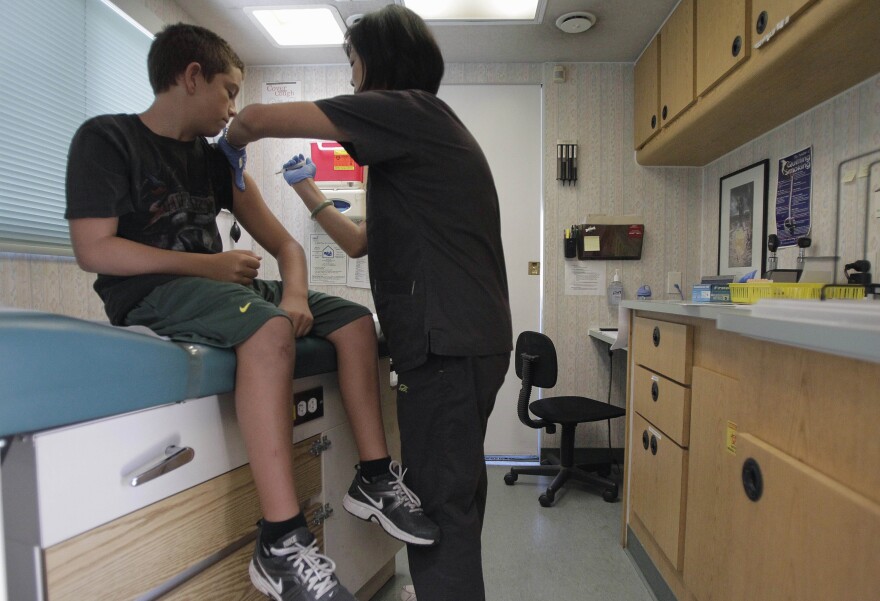A growing number of parents in Maine are opting against having their school-aged children vaccinated against disease.
Newly released data from Maine's Center for Disease Control and Prevention show that more than five percent of kindergarteners in the state did not receive required vaccinations last fall, and that most of the parents in those cases cited “philosophic” reasons for their decision not to vaccinate. Medical and school officials say they are concerned that the trend could make schools unsafe, and lead to more disease outbreaks in the future.
In Maine, parents are allowed to exempt their child from vaccinations on three grounds. One is religious. Another is medical, for instance when a child is too young or has a certain immune disease. The third, and most troubling exemption for some in the medical field, is "philosophical." That is when a parent refuses to vaccinate their child due to beliefs that vaccines may cause autism or other problems – beliefs based on a now-retracted study that has been repeatedly refuted by scientists and agencies such as the CDC. Maine is one of 47 states that allows religious exemptions, and one of 18 states that allows exemptions for one's personal beliefs.
“It's very concerning,” says Peter Michaud, chair of the Maine Immunization Coalition.
Over the past three years, the number of parents who use the “philosophical” exemption has risen rapidly. Michaud says with more students unvaccinated by choice, it puts the people who can't be vaccinated – like infants and people with compromised immune systems and certain diseases – at risk.
“With the rate going up, I think it's very worrying about how our school community as a whole will be protected in the future,” he says.
School officials say that they have limited options for convincing parents to vaccinate their children.
David Theoharides, the superintendent of the Sanford School Department, says administrators in his district are vigilant about educating parents on the need to vaccinate.
"We'll work with social workers to have the social worker call a parent, set up appointments for doctors, find doctors for them," Theoharides says. "A lot of times, we have families, they don't have a family doctor. So we'll try to connect them that way.”
But despite those efforts, Theoharides says parents are ultimately the ones who have the power to exempt their child.
According to state data, the rate of parents using the philosophical exemption has risen in Sanford's elementary schools in recent years. Theoharides worries that if that rate continues to climb, it could lead to more outbreaks of diseases such as pertussis, also called whooping cough. In fact, the district had an outbreak just last month.
“Because we went through this recent pertussis outbreak, that concerns me," he says. "Why did we see this rise in pertussis cases all of the sudden?"
In 2015, lawmakers submitted two bills that would have strengthened vaccination laws. One was a proposal from Democratic state Rep. Linda Sanborn that would require families to consult with a physician before using philosophical exemptions. It passed in both the House and Senate, but was vetoed by the governor.
The same year, Democratic Rep. Ralph Tucker of Brunswick proposed a bill that would have eliminated the philosophical exemption entirely. Tucker says after seeing the opt-out numbers rise once again, he plans to introduce a similar bill next year.
"The purpose is to protect the school body, all the kids at school," he says. "You don't want to send a kid into the general school population if there are a number of people who are unvaccinated in that population."
However, Tucker says the fate of a new vaccination bill will likely depend on which gubernatorial candidate the state elects this fall.
Education reporting on Maine Public Radio is supported by a grant from the Nellie Mae Education Foundation.



